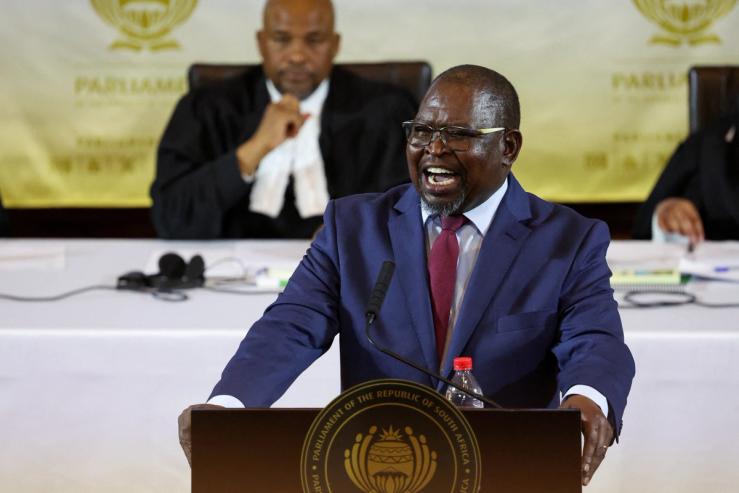The News
CAPE TOWN — South Africa will use a third of its gold and foreign exchange reserves to manage runaway debt and create spending room in an election year. Finance minister Enoch Godongwana announced this unusual move in the country’s parliament in Cape Town on Wednesday.
The announcement came a day after President Cyril Ramaphosa announced that the country’s general elections would be held on May 29. The ruling African National Congress (ANC) faces its toughest campaign since Nelson Mandela led it to power in 1994 to end apartheid rule.
South Africa will withdraw 150 billion rand ($8 billion) over three years. Godongwana said steps will be taken to ensure that sufficient buffers are available to absorb exchange rate swings and the solvency of the Reserve Bank is not compromised. The financial markets seemed to welcome the move, with the currency appreciating while bond yields went down.
The country’s biggest worker union federation also welcomed the move. “It is critical these reserves be used strategically to stabilize and rebuild Eskom and Transnet in particular, as this can only be a once off relief and needs to be utilized to grow the economy and reduce unemployment,” said Matthew Parks, spokesman for the Congress of South African Trade Union.
Sam’s view
Some see this is a smart move, as holding on to savings may not be wise when debt service costs are making you miserable despite your cash position. At the same time, dipping into the reserves is akin to selling the family silver. The ANC government has been reluctant and slow to restructure the country’s balance sheet or cut spending.
The debts of dysfunctional state monopolies like power utility Eskom have weighed heavily on the whole economy. Instead of inviting private investors to the companies speedily, the ANC dips into the reserves. While this use of the reserves may not be the worst thing, it takes away the incentive to swallow the bitter pill of selling state assets.
South Africa’s debt will now peak at 75.3% of GDP next year and start stabilizing in the following years, according to the government. South Africa’s debt service costs have been the fastest-growing item on the budget in the last decade, taking away money that could go to stimulating the economy, which has only grown at 0.8% on average in the last decade.


